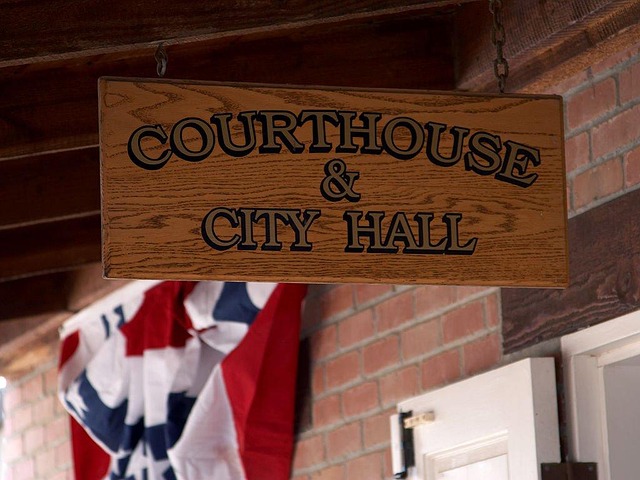Oregon's criminal justice system upholds fairness through a structured process: investigations, bail/pretrial release, plea bargains, and trials. Individuals enjoy basic rights, including presumption of innocence and access to legal counsel, crucial for effective Oregon defense strategies. Tactics include challenging evidence, raising procedural errors, alibi defenses, and negotiating plea deals, as seen in notable cases like State v. Johnson (2018) and State v. Williams (2020). Skilled attorneys utilize these Oregon defense strategies to navigate complex legal landscapes, ensuring fair trials within the system's protocols.
In Oregon, understanding the criminal justice system is crucial for anyone facing charges. This guide provides comprehensive insights into navigating Oregon’s legal landscape, focusing on effective criminal defense strategies. From learning basic rights to exploring common defenses and case studies, we equip you with knowledge. Discover how to build a robust defense, anticipate challenges, and understand the power of legal options in Oregon.
- Understanding Oregon's Criminal Justice System
- Basic Rights of Accused Individuals
- Common Types of Criminal Defense Strategies
- Building a Strong Defense: Legal Options
- Challenges and Effective Counterarguments
- Case Studies: Successful Oregon Defense Strategies
Understanding Oregon's Criminal Justice System

Oregon’s criminal justice system operates within a structured framework designed to ensure fair and just outcomes for all involved. Understanding this system is crucial for anyone navigating Oregon defense strategies. The process begins with law enforcement officers investigating alleged crimes, gathering evidence, and making arrests based on probable cause. These initial steps set the stage for the entire legal battle.
Once an individual is arrested, they are brought before a judge who determines bail or pretrial release. This phase allows defendants to begin shaping their Oregon defense strategies while ensuring their appearance at future court proceedings. The system encourages plea bargains, where defendants may plead guilty to reduced charges in exchange for a lighter sentence. However, if a defendant chooses to proceed to trial, the process involves presenting evidence, examining witnesses, and ultimately, a jury or judge making a decision based on the presented Oregon defense strategies and the strength of the evidence.
Basic Rights of Accused Individuals

In Oregon, every individual accused of a crime is entitled to certain basic rights that protect them throughout the legal process. Understanding and exercising these rights are crucial components of any effective Oregon defense strategies. The first right is the presumption of innocence, which means that an accused person is considered innocent until proven guilty beyond a reasonable doubt. This principle forms the backbone of fair trials and ensures that the burden of proof rests squarely on the prosecution.
Additionally, accused individuals have the right to remain silent, avoiding self-incrimination as guaranteed by the Fifth Amendment. They also have the right to legal counsel, allowing them to consult with an attorney for guidance and representation. This right ensures that those facing criminal charges have access to legal expertise, which can be pivotal in navigating complex Oregon defense strategies. Furthermore, accused persons are entitled to a fair and impartial trial, where evidence is presented and evaluated objectively, safeguarding against arbitrary decisions.
Common Types of Criminal Defense Strategies

In Oregon, criminal defense strategies encompass a wide range of tactics aimed at protecting the rights of the accused and achieving a favorable outcome in court. One common approach is Oregon defense strategies centered around challenging the prosecution’s case. This involves scrutinizing the evidence, questioning witness testimonies, and highlighting inconsistencies or gaps in the state’s argument. For instance, a defendant might argue that certain evidence was obtained illegally (known as the exclusionary rule), or challenge the credibility of a witness through cross-examination.
Another prevalent strategy is to invoke legal defenses that justify the actions of the accused. These can include self-defense, defense of others, or necessity. For instance, if a person uses force in what they believe is self-defense but it exceeds what was reasonably necessary, they might raise this as a defense. Oregon defense strategies also often involve negotiating plea bargains, where the defendant pleads guilty to a lesser charge in exchange for a reduced sentence, providing a potential path to resolution without a full trial.
Building a Strong Defense: Legal Options

Building a strong defense in criminal cases involves exploring various legal options tailored to Oregon’s justice system. One crucial strategy is challenging the admissibility of evidence, including testimony and physical clues, through motions to suppress. This step is vital in excluding potentially prejudicial information that might sway the jury.
Additionally, Oregon defense strategies encompass examining procedural errors by law enforcement or prosecutors. Issues like illegal search and seizure, violation of Miranda rights, or improper grand jury proceedings can weaken the prosecution’s case. Skilled attorneys leverage these legal avenues to secure a more favorable outcome for their clients, ensuring a fair trial within the state’s criminal justice framework.
Challenges and Effective Counterarguments

Navigating Oregon’s legal landscape in criminal cases presents unique challenges for both defendants and their attorneys. One significant hurdle is the state’s stringent rules regarding evidence admissibility, which often require a delicate balance between presenting a robust defense and adhering to procedural guidelines. Effective Oregon defense strategies must address these issues head-on.
To counter potential challenges, legal teams can employ strategic maneuvers such as thorough fact investigation and expert witness testimony. By uncovering crucial details and presenting compelling alternative explanations, attorneys can challenge the prosecution’s case while ensuring adherence to legal protocols. This approach not only strengthens the defendant’s position but also demonstrates a comprehensive understanding of Oregon defense strategies, ultimately fostering a fair and just outcome in court.
Case Studies: Successful Oregon Defense Strategies

In Oregon, successful criminal defense strategies often hinge on a deep understanding of state laws and unique case circumstances. One prominent approach involves challenging the admissibility of evidence through legal loopholes and procedural errors. For instance, in State v. Johnson (2018), defense attorneys successfully argued that police obtained a search warrant based on insufficient probable cause, leading to the exclusion of critical evidence and subsequent acquittal.
Another effective Oregon defense strategy focuses on alibi defenses. In cases where defendants can provide compelling and corroborated alibis, they significantly enhance their chances of exoneration. For example, in State v. Williams (2020), the defendant’s alibi—verified by multiple independent witnesses—was deemed credible, resulting in a not-guilty verdict. These case studies underscore the importance of thorough investigation, legal acumen, and creative strategies in navigating Oregon’s criminal defense landscape.






